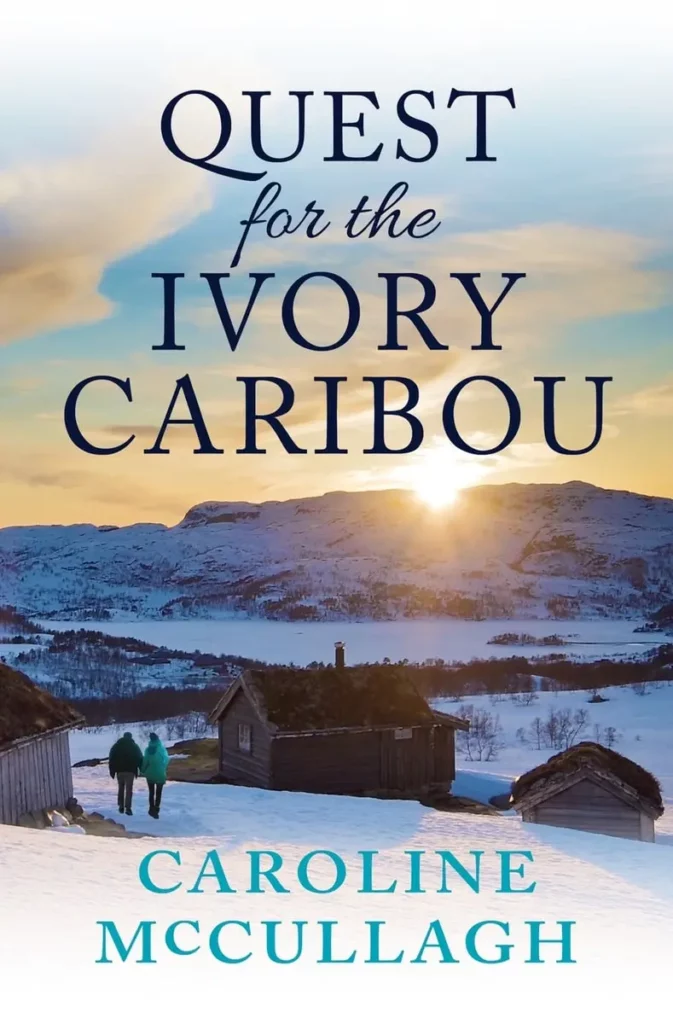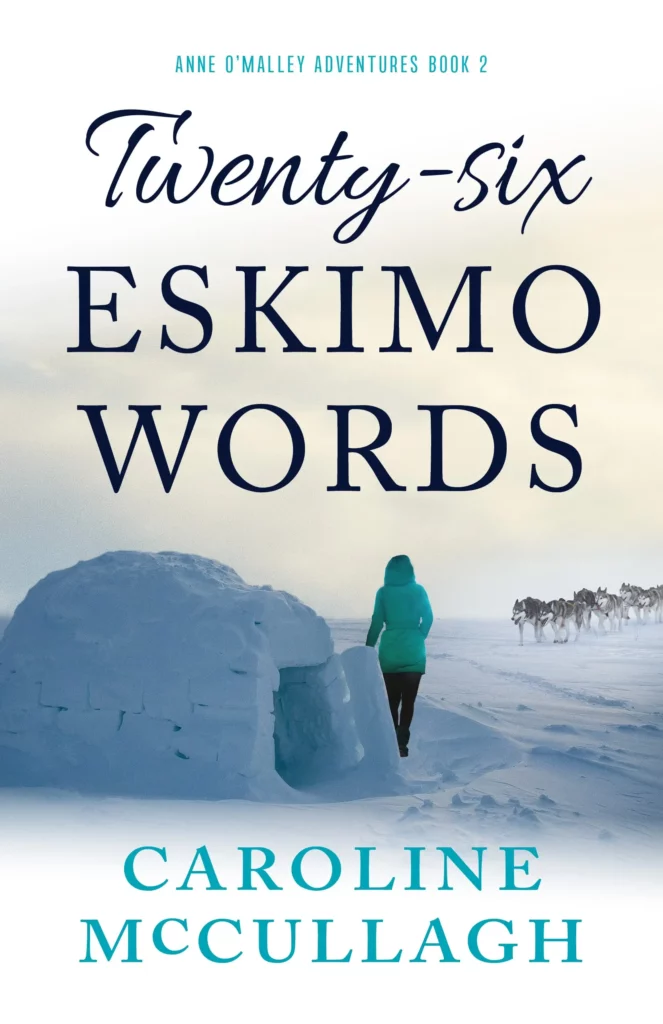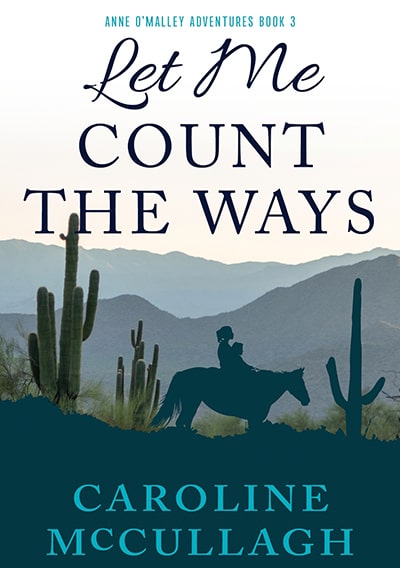Character Recipes
Reading Group Questions
-
Quest for the Ivory Caribou
-

- At the beginning of the book, we get a sense of the relationship between Anne and Carola. How would you describe this relationship?
- Anne is a widow. What do we know about her from the beginning? Why is it important that we know these things?
- What impression do we, as readers, get of Anne’s late husband, Robby? How does our impression of him inform our expectations of Anne?
- What do you see as Carola’s role in the book?
- As a reader, how did you respond to Anne’s relationship with René?
- What, in the end, makes Jack so appealing to Anne?
- Anne’s journey begins as a quest to find out more about her dead husband’s father. What does it morph into?
- Anne is a woman in her 60’s, and yet this is a coming-of-age novel. How does that reconcile? What does this tell us about “coming-of-age”?
- How does the Inuit culture inform Anne’s development? What role does it play in the development of her relationship with Jack?
- Jack straddles two worlds. What are the most glaring difficulties? What allows him to do this successfully?
- Anne has spent her life depending on mentors—her father, Robby, Carola, René, and now Jack, who is guiding her through this new culture. How has this inhibited her personal growth? And how has it enhanced it?
- Change is often difficult. Why?
- What do you think drove Anne forward initially? What kept her moving forward?
- Why is it important to continue evolving at every age? What happens when we don’t?
- In what ways are you still growing and changing?
-
Twenty-Six Eskimo Words
-

- Anne is a rich woman. She asks Jack if her money is going to be a problem between them. In what ways might it be? When money becomes a problem in a relationship, what does that signify?
- Regarding taking the job in Alaska, Jack says, “I’ve thought about the ethics of this. I think as long as we do what we contract to do, it’s not unethical to take the oil company’s money while we hope to help the people working to stop them. I know it’s a convoluted argument, but that’s why I’m interested.” What do you think of his reasoning?
- What role does humor play in Jack and Anne’s relationship? What role can it play in any relationship?
- Quipac says of himself and Jack, “We each see the world in two ways—the Inuit way and the white way.” Discuss how living this way might affect a person.
- What do you think about the story Quipac told Anne about what happened to the Inuit after contact?
- How do you explain the confidence Quipac, Anne, and Jack have in each other? Do you have this level of trust with people in your own life? How difficult or easy is it to develop?
- Jack is “… one of those men who needed to be in charge and never show weakness.” How would you respond to a man like that? Why?
- Speaking about making love, Jack says to Anne, “I don’t care what he [Quipac] sees. What’s private for me is what we talk about, what we share that way.” Discuss the pros and cons of a man who thinks like this.
- Both Hal and Jack refer to Anne as brave. What is your definition of brave? And does Anne meet it?
- Anne says to Hal, “If you’re going to change, you need to do that for yourself, not for someone else.” In what ways have you changed for yourself? In what ways have you changed for someone else? Which did you find to be the more powerful and satisfying experience?
- At the end of the book, Anne says, “… I don’t know how I feel about Hal. What had seemed so simple in the beginning wasn’t simple anymore.” How would you describe the evolution of their relationship? And to what would you attribute that evolution?
- The tension in this book is multi-layered. Discuss those layers and how they play into each other.
- What did you think of Hal’s final gift to Anne? Why do you think he did this?
- Anne is a study in contrasts. She is an independent woman willing to fully share her life with someone. She is strong, proud, and capable–yet she is willing and eager to adopt Jack’s way of life. What do you see as her strengths and weaknesses? Would you want to be her friend?
-
Let Me Count the Ways
-

- Though Anne and Jack are in love, they keep things from each other. Do you think this is the case in most good relationships? Have you ever purposefully kept something from your partner?
- What drives Anne and Jack to even think about adopting Hal’s son? What qualities does a person need to make a good adoptive parent?
- Hal and Jack seem to have developed a mutual respect. What could be the driving force behind this?
- Anne and Jack want to keep Hal in Victor’s life. If you adopted a child, how would you handle knowledge of or contact with the birth parents? Why?
- Anne admits that as much as she loves Jack, she still doesn’t know him. Can we truly love someone we don’t really know? How would you see this impacting your relationship?
- Anne and Jack have great sensitivity about Victor’s parents and their ongoing role in his life. What are the most important decisions they make regarding this? And how would you handle it?
- What does it tell you when Victor points out the similarities between himself and Jack?
- Anne decides to trust Nate. Would you? Why?
- Anne says to Hal, “. . . I saw there was a difference between what you did and who you are.” Discuss how this has ever applied in your relationships and whether or not you believe we can clearly make this distinction.
- Would you have the courage to accompany Hal to Mexico? What drives Anne’s courage throughout the ordeal?
- “Good or not, I would do what I had to do to protect my own.” Anne says this to herself as she and Victor head to the border. How far might you go to protect your own?
- Most people, no matter how damaged, have redeeming qualities. What are Hal’s?
- Hal describes Castillo as devoid of humanity. Have you ever felt that way about someone? Why?
- What does Anne come to realize about both Hal and Jack that truly surprises her?
- By the end of the book, how do you feel about Jack, Anne, and Hal?

- At the beginning of the book, we get a sense of the relationship between Anne and Carola. How would you describe this relationship?
- Anne is a widow. What do we know about her from the beginning? Why is it important that we know these things?
- What impression do we, as readers, get of Anne’s late husband, Robby? How does our impression of him inform our expectations of Anne?
- What do you see as Carola’s role in the book?
- As a reader, how did you respond to Anne’s relationship with René?
- What, in the end, makes Jack so appealing to Anne?
- Anne’s journey begins as a quest to find out more about her dead husband’s father. What does it morph into?
- Anne is a woman in her 60’s, and yet this is a coming-of-age novel. How does that reconcile? What does this tell us about “coming-of-age”?
- How does the Inuit culture inform Anne’s development? What role does it play in the development of her relationship with Jack?
- Jack straddles two worlds. What are the most glaring difficulties? What allows him to do this successfully?
- Anne has spent her life depending on mentors—her father, Robby, Carola, René, and now Jack, who is guiding her through this new culture. How has this inhibited her personal growth? And how has it enhanced it?
- Change is often difficult. Why?
- What do you think drove Anne forward initially? What kept her moving forward?
- Why is it important to continue evolving at every age? What happens when we don’t?
- In what ways are you still growing and changing?

- Anne is a rich woman. She asks Jack if her money is going to be a problem between them. In what ways might it be? When money becomes a problem in a relationship, what does that signify?
- Regarding taking the job in Alaska, Jack says, “I’ve thought about the ethics of this. I think as long as we do what we contract to do, it’s not unethical to take the oil company’s money while we hope to help the people working to stop them. I know it’s a convoluted argument, but that’s why I’m interested.” What do you think of his reasoning?
- What role does humor play in Jack and Anne’s relationship? What role can it play in any relationship?
- Quipac says of himself and Jack, “We each see the world in two ways—the Inuit way and the white way.” Discuss how living this way might affect a person.
- What do you think about the story Quipac told Anne about what happened to the Inuit after contact?
- How do you explain the confidence Quipac, Anne, and Jack have in each other? Do you have this level of trust with people in your own life? How difficult or easy is it to develop?
- Jack is “… one of those men who needed to be in charge and never show weakness.” How would you respond to a man like that? Why?
- Speaking about making love, Jack says to Anne, “I don’t care what he [Quipac] sees. What’s private for me is what we talk about, what we share that way.” Discuss the pros and cons of a man who thinks like this.
- Both Hal and Jack refer to Anne as brave. What is your definition of brave? And does Anne meet it?
- Anne says to Hal, “If you’re going to change, you need to do that for yourself, not for someone else.” In what ways have you changed for yourself? In what ways have you changed for someone else? Which did you find to be the more powerful and satisfying experience?
- At the end of the book, Anne says, “… I don’t know how I feel about Hal. What had seemed so simple in the beginning wasn’t simple anymore.” How would you describe the evolution of their relationship? And to what would you attribute that evolution?
- The tension in this book is multi-layered. Discuss those layers and how they play into each other.
- What did you think of Hal’s final gift to Anne? Why do you think he did this?
- Anne is a study in contrasts. She is an independent woman willing to fully share her life with someone. She is strong, proud, and capable–yet she is willing and eager to adopt Jack’s way of life. What do you see as her strengths and weaknesses? Would you want to be her friend?

- Though Anne and Jack are in love, they keep things from each other. Do you think this is the case in most good relationships? Have you ever purposefully kept something from your partner?
- What drives Anne and Jack to even think about adopting Hal’s son? What qualities does a person need to make a good adoptive parent?
- Hal and Jack seem to have developed a mutual respect. What could be the driving force behind this?
- Anne and Jack want to keep Hal in Victor’s life. If you adopted a child, how would you handle knowledge of or contact with the birth parents? Why?
- Anne admits that as much as she loves Jack, she still doesn’t know him. Can we truly love someone we don’t really know? How would you see this impacting your relationship?
- Anne and Jack have great sensitivity about Victor’s parents and their ongoing role in his life. What are the most important decisions they make regarding this? And how would you handle it?
- What does it tell you when Victor points out the similarities between himself and Jack?
- Anne decides to trust Nate. Would you? Why?
- Anne says to Hal, “. . . I saw there was a difference between what you did and who you are.” Discuss how this has ever applied in your relationships and whether or not you believe we can clearly make this distinction.
- Would you have the courage to accompany Hal to Mexico? What drives Anne’s courage throughout the ordeal?
- “Good or not, I would do what I had to do to protect my own.” Anne says this to herself as she and Victor head to the border. How far might you go to protect your own?
- Most people, no matter how damaged, have redeeming qualities. What are Hal’s?
- Hal describes Castillo as devoid of humanity. Have you ever felt that way about someone? Why?
- What does Anne come to realize about both Hal and Jack that truly surprises her?
- By the end of the book, how do you feel about Jack, Anne, and Hal?
